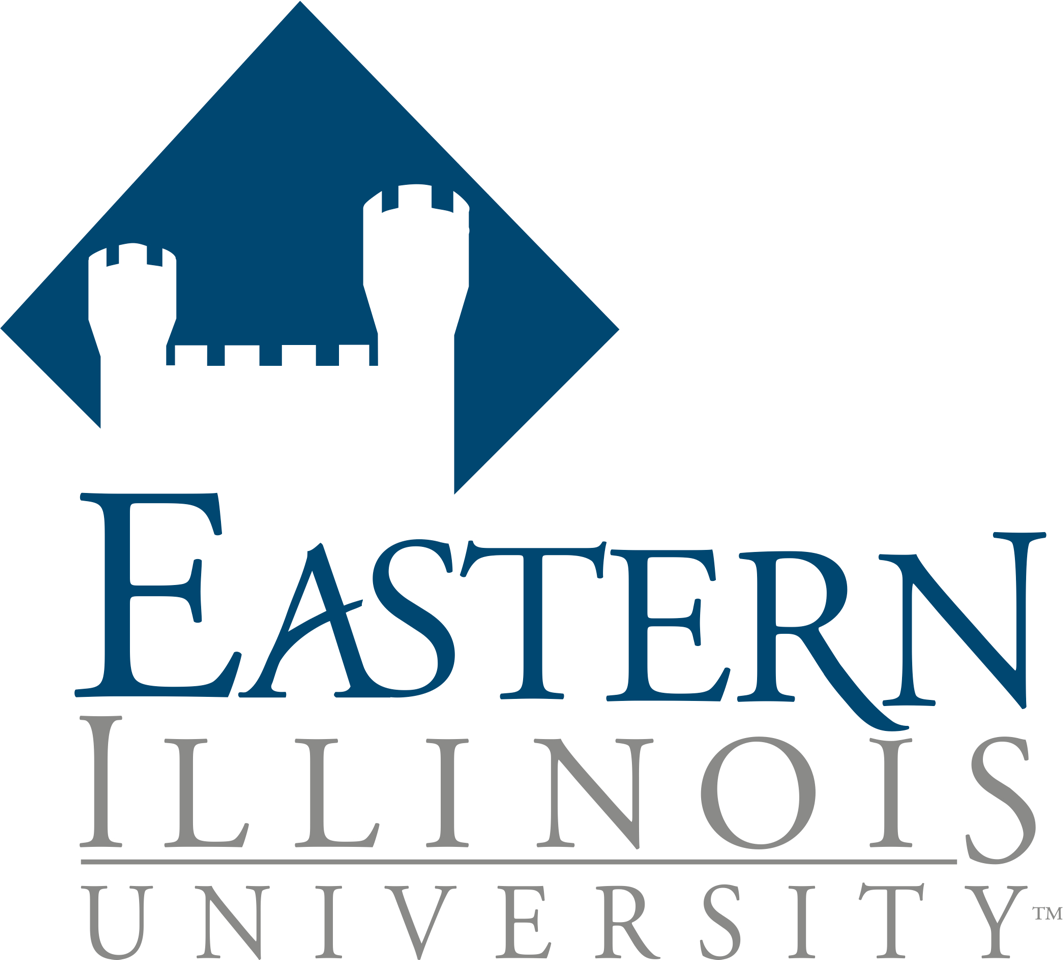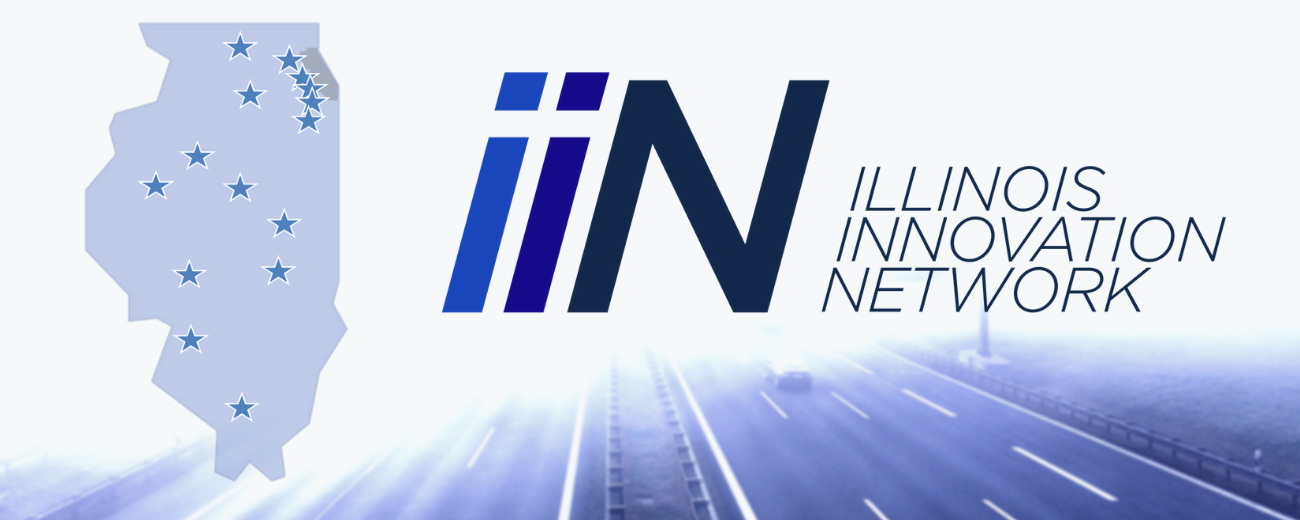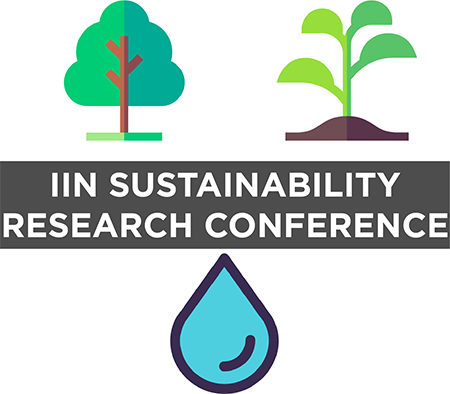- Graduate Assistantships
- Prospective Students
- Admissions
- Graduate Students & Alumni
- Faculty and Staff
-
AWARDS, SCHOLARSHIPS AND GRANTS
- Competitive Student Awards
- Student Scholarships
- Competitive Awards For Graduate Programs and Faculty
- Graduate Programs of Excellence
- Nomination for Distinguished Graduate Student
- The Graduate Expo
- Research and Creative Works Presentation Form
- 2025 Graduate Scholar: Journal of Scholarship & Recognition
|
|
|
 |
Sustainability Workshop: The Acquisition and Application of Sustainability Datasets in Illinois. 9:00 to 9:50 am
Introduction by Dr. David Glassman, President, Eastern Illinois University
Dr. Ryan Burge, Political Science, Eastern Illinois University
Dr. Nichole Hugo, Sustainability, Eastern Illinois University
Data is more abundant today than at any point in human history. But where can it be found? And, how can it be visualized? This workshop will focus on the most helpful places to find exhaustive datasets regarding energy, the environment, and sustainability, focusing especially on data in Illinois. Discussion will center around both the positive aspects of gathering information on the internet as well as possible drawbacks to data gathered online. In addition, there will be several walkthroughs on how to create both static and dynamic data visualizations. The focus here will be on tools that are both free and open source as well as some additional links to tutorials and online learning platforms to make data visualization easier and more effective for both scientific and lay audiences. There will be discussion of how to make visually appealing traditional charts and graphs, and will include a tutorial about how to generate an interactive map with free open source tools. The workshop will include plenty of time for questions and answers, as well as for the group to work through the data visualizations on their own laptops.
Sustainability Presentation: 10:00 to 10:50 am | Defining Sustainability in a Post Covid-19, World: Global, National, and Local Challenges and What this Means for Illinois
Introduction by Brittany Price, Northern Illinois University
Dr. Robert Brinkmann, Dean of the College of Liberal Arts and Sciences, Northern Illinois University
Since the advent of the Brundtland Report in the 1980’s the definition of sustainability has adapted to changing times. It is important to recognize that at this moment, we are approaching a post-COVID reality in an emerging era of environmental, economic, and social sustainability crises. Extensive fires across Australia and the Amazon, increasing income inequality, and the breakdown of human rights and civic institutions in many corners of the world (including the United States) all point toward accelerating end intermingling complex challenges. This presentation will highlight several emerging sustainability challenges at the global, national, and local scale and what this means for Illinois. Special attention will be given to the issues of food, water, and environmental change and how these themes fit within traditional and emerging definitions of sustainability.
Sustainability Presentation: 11:00 to 11:50 am | The Benefits of Buying Local
Introduction by Nichole Hugo, Eastern Illinois University
Dr. Amy Bardwell, Family and Consumer Sciences, Illinois State University
The local food movement has been steadily gaining support for more than a decade, and Illinois is no exception to this increasing trend. But why should restaurants consider buying local? Why should consumers want to support local restaurants and local farmers? This workshop explores how supporting local and regional food businesses gives consumers a sense of belonging, can enhance the local economy, and encourages tourism through showcasing the local flavors. Real restaurants and farms in Illinois will be highlighted and the work they are doing to connect with each other, and consumers will be discussed.
Sustainability Plenary Address: noon to 12:50 pm | Science that Serves: Basic Science in Service of Applied Research Interests that Benefits Public Health, Ecosystem Services, and Future Innovation
Introduction by Jay Walsh, University of Illinois
Dr. Danielle Lee, Biological Sciences, Southern Illinois University Edwardsville
The biggest public health challenges on the horizon will require a collective scientific attack. Yet, all too often applied scientists such as epidemiologists or those in public health, and practitioners such as physicians are battling diseases such as Ebola or Hanta or Corona viruses in the dark. Physicians and public health scientists that are focused on treatment and transmission may fail to recognize critical zoonotic factors that evolutionary biologists and ecologists are aware of because of their training in natural history, population biology, animal behavior and evolutionary biology. These basic scientists understand the species that are often the vectors and reservoirs of these viruses. Working in silos means both basic and applied science misses important opportunities to collaborate, as well as coordinate effective responses to current and soon-to-come public health problems. This need for basic and applied science interaction and collaboration doesn’t apply only to Life Sciences, but to the Physical Sciences, Mathematics and Technologies, too. My lab examines the descriptive ecology and behavior of local field mice and giant pouched rats in Tanzania, aiming to understand how these species successfully make a living near people and often times at our expense. In turn, this information is especially useful to communities in ongoing pest management battles, to public health researchers, as well as applied psychologists who train pouched rats to detect landmine explosives and diagnosing tuberculosis exposure in patients.
Afternoon Poster and Research Presentations | Click on the topic to register for the session
Click on the title to view the abstract
1:00-2:00 pm
Impacts and Societal Issues
Room 1- Moderator: Jill Bowers, Eastern Illinois University
- Carolyn Bates, Eastern Illinois University
The Importance of Equal Pay in Promoting Societal Growth - Gabriel Grant, Eastern Illinois University
Why Your Delusions of a Paperless Society are Messed Up - Carolee Rigsbee, Stephen Newell, Carol Jessup, Gaston de los Reyes, Jr., University of Illinois at Springfield
Social Purpose Value Chains: Overcoming Barriers to Social Goal Achievement - Joshua Harden and Alex Seidler, Eastern Illinois University
Can Mindful Eating Contribute to Sustainable Consumption Behaviors in an Individual?
Water Assessment and Governance
Room 2- Moderator: Jerry Cloward, Eastern Illinois University
- Kyu Cho, Northern Illinois University
Modeling study of a promising electrocoagulation system for water treatment - Kofi Akamani, Southern Illinois University Carbondale; Rachel Boucher, Iowa Department of Natural Resources
Linking water governance and community resilience: A case study of the Cache River watershed of southern Illinois - Abigail Heath, Eric Peterson, Emmett Spooner, Phil Nicodemus, Illinois State University
Assessment of floating gardens to improve the water quality of the Chicago River - Di Wu, Amina Naliaka, Ruopu Li, Southern Illinois University Carbondale
Are Irrigation Activities Sustainable? A Preliminary Data-driven Perspective
Pedagogy and Hands-On Learning
Room 3- Moderator: Noha Shawki, Illinois State University
- Dawn Null, Kristiana Feeser, Geory Kurtzhals, Southern Illinois University
An Assessment of Environmental Literacy, Behaviors, Attitudes and Lifestyle Factors of College Students - Leslie Duram and Justin Schoof, Southern Illinois University Carbondale
Teaching Sustainability and Action: Geography of Climate Change - Nicholas Erwin, Southern Illinois University Carbondale
Investigating Sustainability Literacy at Southern Illinois University Carbondale using the Assessment of Sustainability Knowledge (ASK) Scale - Elisabeth Reed, Illinois State University
"Fix It Friday" Sustainability through Experiential Learning: One Stitch at a Time
Community Design
Room 4- Moderator: Daniel Block, Chicago State
- Craig Anz, Marjorie Brooks, Rolando Gonzalez-Torres, Southern Illinois University Carbondale
Critical Environmental Interfacing, Ecosystem Service Resourcing, and Community Design Practices - Alec Foster, Illinois State University
Terra Nullius or Terra Incognita? Documenting Land Use Practices in South Kensington, Philadelphia - Chris Merrett, Gisele Hamm, Sean Park, Illinois Institute for Rural Affairs, Western Illinois University
Collaborative and Cooperative Approaches to Sustainable Rural Community Development - Amy McEuen, University of Illinois Springfield
Rethinking Conservation: Expanding Native Biodiversity Across Private and Public Landscapes
2:00-3:00 pm
Water Analysis
Room 1- Moderator: Melissa Lenczewski, Northern Illinois University
- Jack Wassik, Eric Peterson, Dagmar Budikova, Catherine O'Reilly, Illinois State University
Multi-year analysis of Groundwater Temperature fluctuations - Amy Weckle and Yu-Feng Win, Illinois Water Resources Center at the University of Illinois
Building collaborations through the Illinois Water Resources Center - Elijah Schukow, Eric Peterson, William Perry, Jack Wang, Catherine O'Reilly, Illinois State University
Concentration-discharge relationships observed for sediment and phosphorus transport in response to storm events in an agriculturally dominated watershed in central Illinois - Jennifer Davis, University of Illinois at Springfield
Asian Carp - The Invasive Flying Fish
Green Roofs
Room 2- Moderator: Wuttigari Boonsuk, Eastern Illinois University
- Bill Retzlaff, Serdar Celik, Susan Morgan, Southern Illinois University Edwardsville
Investigation of Plant Performance on Green Roof Systems at SIUE - Susan Morgan, Bill Retzlaff, Serdar Celik, Southern Illinois University Edwardsville
Investigation of Stormwater Performance of Green Roof Systems at SIUE - Serdar Celik, Bill Retzlaff, Susan Morgan, Southern Illinois University Edwardsville
Investigation of Thermal Performance of Green Roof Systems and Their Synergistic Benefits with Solar Panels at SIUE Campus - Jen Backer, Bill Retzlaff, Serdar Celik, Susan Morgan, Southern Illinois University Edwardsville
Locally available produce from urban green infrastructure
Youth Impact
Room 3- Moderator: Christopher Merrett, Western Illinois University
- Jennine Harvey and Isaac Chang, Illinois State University; Megan Cuellar, San Jose State University
Virtual Reality for Speech-Language Pathology: Developing Sustainable Practices - Luis Pado and Luke Downing, Southern Illinois University
Through Your Eyes and Mine: A Child’s Tour of Anthropogenic Climate Change and Environmental Destruction - Josie Taylor, Southern Illinois University Carbondale
The Influence of Childhood Zoo Visitation on Adult Sustainability Behavior: A Self-Assessment Analysis - Alyssa Weisenstein, Andrea Burzynski, Holly Dunderdale, Megin Rice, Southern Illinois University Carbondale
Scientific Research in the Secondary Classroom: Peer Led Community Learning
Linkages to Community and Leadership
Room 4- Moderator: Yan Qi, Southern Illinois University Edwardsville
- Anna Bukowska and Alec Foster, Illinois State University
Growing Justice? Tree Canopy Change and Equity in Philadelphia - Nelson Fernandes, John Groninger, Southern Illinois University Carbondale
Using Leadership to Transform an Underutilized Green Space into a Multidisciplinary Innovation Hub for Participatory Learning - Amir Louaibi, University of Illinois at Chicago
Biking, Chicago, UIC, and a Global Pandemic. - Frances Ritchie, University of Illinois at Chicago
Enhancing Commuter Choice Options to Manage Post-Pandemic Demand
3:00-4:00 pm
Assorted Topics in Sustainability
Room 1- Moderator: Nichole Hugo, Eastern Illinois University
- Mehdi Ashayeri, Southern Illinois University Carbondale
A data-driven framework for urban air quality modeling using community resiliency characteristics and machine learning algorithms - Martin Osei, Nichole Hugo, Eastern Illinois University; Peter Schwartz, California Polytechnic State University
Solar Cooking with Phase Change Thermal Storage Medium: More Power! - Michael Roeing-Donna, Hannah Higgins, Kamila Krupiarz, Ryan O'Connor, Jifu Tan, Nicholas Pohlman, Northern Illinois University
Granular flow behavior in a conveyor system: from local velocity profiles to mass flow rate - Ellen Esling, Southern Illinois University Carbondale
Poor, White, Trash: An Investigation of Rural Simulacra, Place Identity and Media Representations of Southern Illinois
Waste Management
Room 2- Moderator: Ryan Hendrickson, Eastern Illinois University
- Shaibu Ibrahim, Eastern Illinois University
Environmental impacts of municipal solid waste landfill gas in Illinois State - Pearl Deku and Leslie Duram, Southern Illinois University, Carbondale
The Perceived Role of Communities and State Officials in Solid waste management in Ghana, West Africa. - Kevin Parker, Geethi Weragoda, Allan Canty, Richard O'Hair, Victor Ryzhov, Northern Illinois University
Deoxygenation and Cracking of Fatty Acids for Production of Diesel-Like Hydrocarbons
Recycling, Upcycling and Reuse
Room 3- Moderator: Ning Ai, University of Illinois at Chicago
- Katherine Shaw, Eastern Illinois University
Fashion Sustainability: Fast Fashion's Impact and Today's Consumer - Toqeer Israr, Eastern Illinois University
Reusing Outdated Computer Equipment - Anne-Marie Hanson and Thomas Rothfus, University of Illinois Springfield
Evaluating Plastic Litter Prevention Strategies on Lake Springfield, Illinois - Junfeng Wang and Megan Styles, University of Illinois Springfield
Adoption of Bag Ordinances in Illinois: Lessons for Municipalities Considering Legislation




